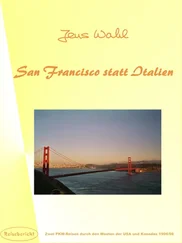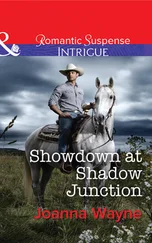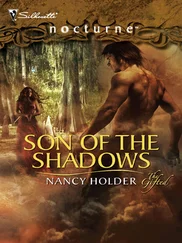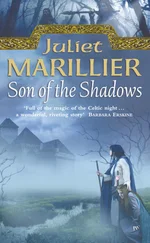Quinn nodded once more and said, “No, Mr. Blau.”
Still the older man did not take his leave. Instead, he leaned in even closer, his gray beard brushing against the side of Quinn’s ear.
“Where were you and Lana the day before last?”
“Me and… Lana?”
The boy’s face went white at the sound of her name in his mouth.
“Yes. Seems to me, I remember you two were supposed to clear out the weeds in Dome Three. And this very morning, what do I see but a whole field still choked with weeds.”
“We did,” he lied. “Only… only, it took longer than we thought. I’m sorry I didn’t tell you. There was more… I can finish it up today, if you like.”
“I would,” Forrest Blau said. “I would like it very much, Quinn. A sin of omission, of failure, is still a sin.” The elder man smiled, the smile forced, as tight and frightening as any frown. “That does remind me, though. When was the last time you made your confession?”
Quinn began to panic, searching among the spiny, green leaves for an answer, any answer. In the end, all he could think of was to shake his head and then shrug weakly.
“Surely you’ve got a few things you’d like to confess,” Forrest added, the false smile giving over to an even falser grin.
Quinn nodded, afraid that if he made any noise, he would blurt out everything, the distracted mutter of all the terrible things he had been hiding coming out in one galloping, terrified rush.
“You know, Quinn, if there’s anything you’d like to tell me, anything big, or small ”—and here Forrest crushed the bean in his grimy-looking hand—“I am always here for you. I like to think of myself as a kind of father to you. Your spiritual father.”
Quinn nodded again, knowing that if the man stood over him for one more minute, one more second, all would be lost. But he didn’t. Forrest Blau slipped the raw bean into his mouth, crushing it, and then turned, disappeared among the hedgerows of silver leaves. For a long moment afterward, it seemed his shadow remained, drawing gooseflesh along Quinn’s skinny neck.
Without ever agreeing to do so out loud, without ever needing to voice their thoughts, the two children ended up stealing away from their chores in Dome Two once again that afternoon, leaving their rakes and hoes in a row of modified corn, sneaking into their tank suits and through the air lock, back out into the red, shapeless world. Before stepping through the pneumatic door, Quinn glanced up and saw the forbidding shape of Forrest Blau’s bolt-action rifle—its shadow falling against his helmet like a condemnation, an accusation of sorts. He ignored this feeling of doubt, of damnation, and trailed behind Lana’s silver figure as she made her way silently back to the light-filled cave.
Today there was a severity to Lana’s face, in its expressions, in the shape of her mouth as they lowered themselves down the rope. Once among the tall silver and pink stands of flowers, Lana immediately doffed her helmet, setting it down in the dirt as if she intended to never wear it again. Then she unzipped her outer tank suit and removed it. Before Quinn managed to rid himself of his own helmet, she had knelt down before him, dirtying her bare knees in the mud.
“What are you doing?” Quinn asked as she placed her hands inside the turgid confines of his space suit. “What are you doing?” he asked again and again, her mouth, her fingers exploring the innocuous curve of his body, until he was kneeling in the grassy open, too. There was a moment, lying there, his suit unzipped, his helmet still halfway on, that he became afraid that she was going to devour him alive, that her teeth, making themselves known somewhere along the lower hemisphere of his body, would betray them both. But no, all became a lazy, light-washed moment with unfamiliar birds cooing, and the delicious panic of human bodies doing what human bodies had always been meant to do. As they lay together, entangled there, Quinn began to quietly believe that the cave had become a kind of garden of Eden, and that God was somewhere among all this splendor, among these impossible, crystalline leaves.
On their return, the children were once again silent. Treading over the arid red rocks, Quinn reached out to touch Lana’s hand, but she seemed shy, inexplicably embarrassed. Fifty meters from Dome One, he tried once more to say something, to take her fingers in his own, but she pulled away from him, shouting something that he could not hear. It was then that they both caught sight of something glinting among the shadows of zigzagging pylons that marked the border of the colony. First it flashed, then it disappeared for a moment, and then it flashed again. Quinn paused, stepping before Lana, holding up a hand. Before he could decipher the shape picking its way along the silver boundary markers, a shot rang out, then another, then another. The first round glanced hard against the side of Quinn’s helmet, knocking him from his feet. The second kicked up a clod of dirt a half meter from his right leg, and the third seemed to disappear entirely. But before the third report was done ringing in his ears, he turned and caught sight of Lana slumping forward, tilting to her left, and Quinn—getting his footing once again—caught her as she fell to her side. The girl was like a sack of diaphanous dirt, loose-necked, spreading out in strange ways as he tried to set her down. When Quinn glanced up, he could see the glare of Forrest Blau’s glassy helmet, the butt of the bolt-action rifle held up against the crook of his arm. The pastor fired once more, the weapon jerking against his shoulder, the report like a whip, cracking sharply through the heavy, carbon-rich air. The bullet struck the front dome of Quinn’s helmet, bifurcating the shield, lodging itself in the dense, pixilated glass. Slowly the air in the tank suit began to whoosh out in a loud hush. The boy did not fall over, only watched as Forrest Blau began to unzip the utility pocket of his space suit, searching for more ammunition. The boy knew then that he did not have much time—there was the leak in his helmet and Lana looked defenseless lying in the dirt—so he grabbed the girl under her bony arms and began to drag her back up the hill, dodging behind the rocky outcroppings as Forrest Blau fired again, then again.
The pastor’s weapon was loud, somewhat accurate, but a misery to try and reload with the bulky silver gloves.
Quinn watched as the elder man tore off his tank gloves and dug amongst his suit’s pockets again, searching for another handful of bullets. Quinn took a deep breath and, shifting Lana upon his left shoulder, began to scale the uneven trail back up the rise. A report boomed from somewhere behind him, a cloud of dust zipping several meters to his right, then a second, this time the shot arcing even closer, sniping at the heels of his black boots. But he was close to the cave’s opening now—the glowing, light-filled hole—and before a third shot ricocheted off a pile of craggy, red rocks, Quinn had begun to lower Lana inside. Together they slid awkwardly down the rope, and then, giving over to exhaustion, the two of them fell into a mound of blossoming pink and white flowers.
All he could think to do was to hide, and so, dragging Lana through the underbrush, the boy found a patch of brambles where the two of them could wait. He carefully lifted Lana’s helmet off, hoping the air would revive her. Her eyes were closed and her lips had turned white. He had a feeling that what was happening to them was not part of God’s plan. Before him was a large stone, which he grasped in his hands as some sort of weapon. He looked up, watching, breathing sharply through the bullet hole in his helmet. There was the long rope hanging in the air, unmoving, untouched—and then, soon enough, the shape of Forrest Blau’s feet, then his middle, then his glassy helmet appeared, as he lowered himself down, half meter by half meter. The bolt-action rifle was slung over his shoulder as he descended. As the pastor reached the leafy stalks and gilded flowers, there was a faint puzzlement, a bleary confusion that passed over the older man’s face, fitted for a moment, as it was, into something akin to religious ecstasy. Then that particular expression was gone, and all that was left was rage, rage at having been misled, of having been lied to, of having not been the first to discover the miracle of such a place. He yanked the rifle from his shoulder, fit several rounds inside, jerked the bolt back, and then marched cautiously through the waist-high grasses, raising the rifle’s sight up to his eye.
Читать дальше
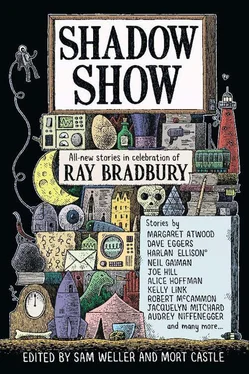


![Lord Weller - Ритера или опасная любовь [СИ]](/books/421202/lord-weller-ritera-ili-opasnaya-lyubov-si-thumb.webp)


